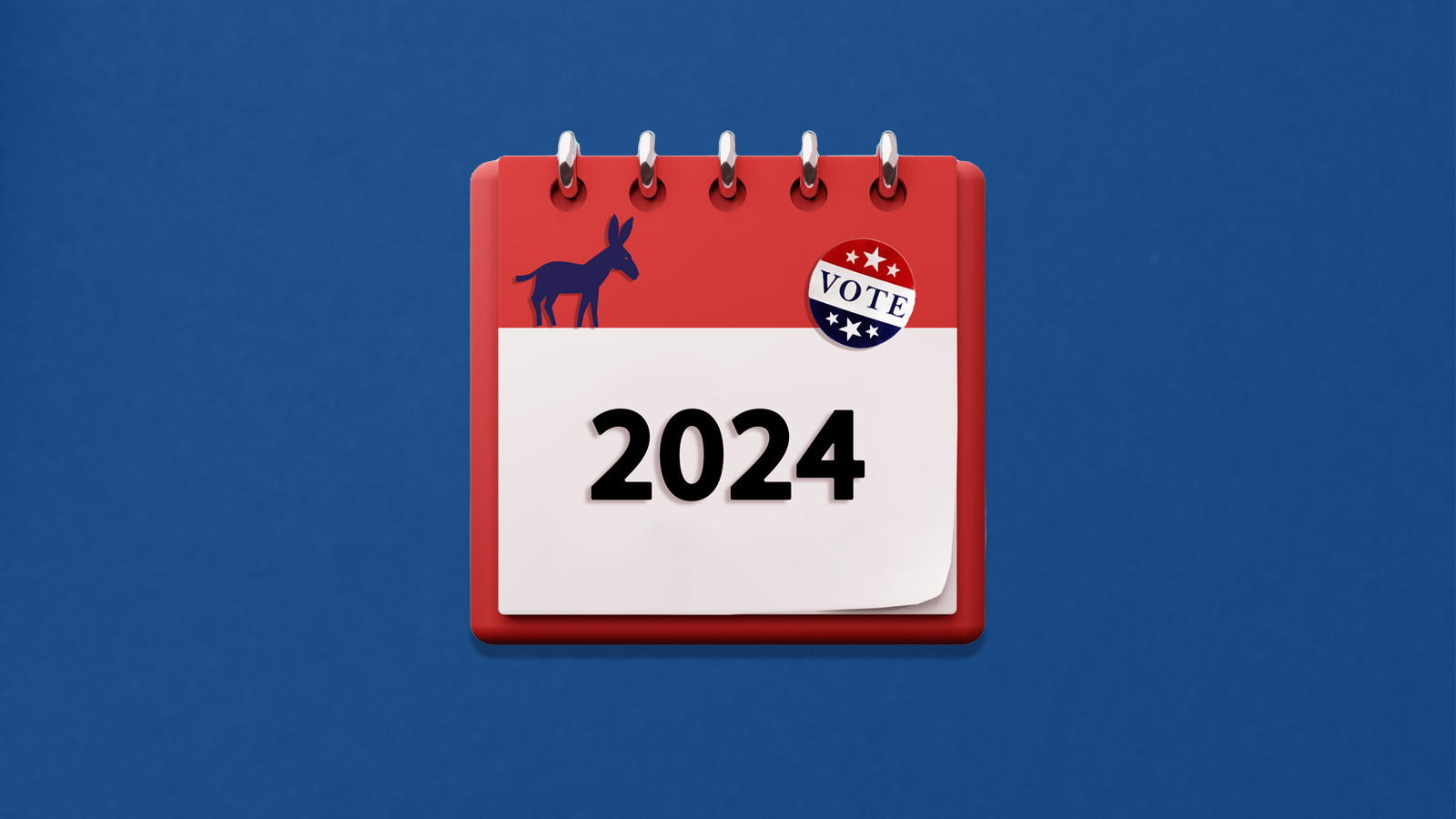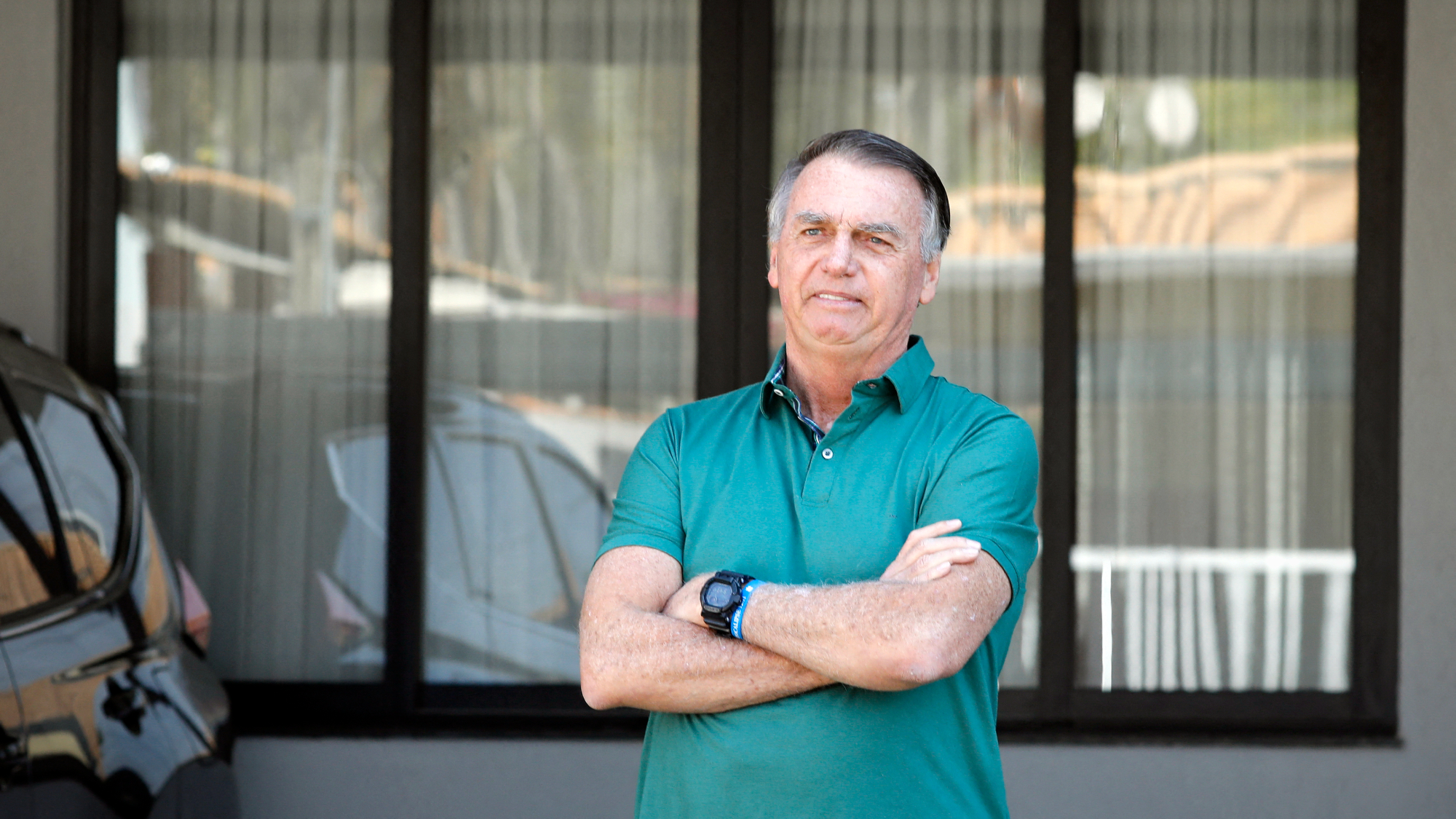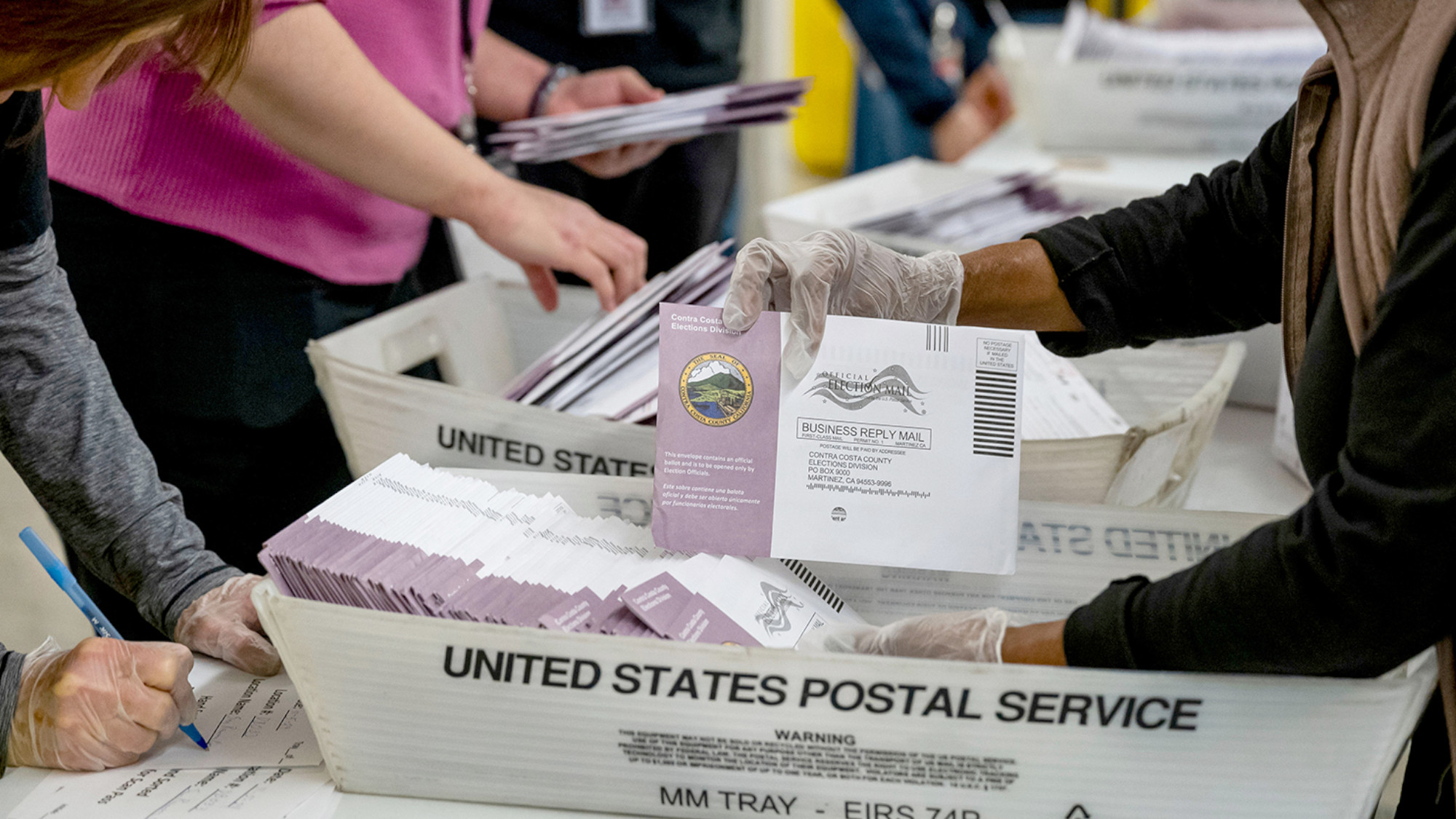Why Democrats want to change the primary calendar
South Carolina is expected to lead the pack in the 2024 primaries


A free daily email with the biggest news stories of the day – and the best features from TheWeek.com
You are now subscribed
Your newsletter sign-up was successful
For generations, Iowa and New Hampshire have led off the presidential nominating season — Iowa with its first-in-the-nation caucuses, and New Hampshire with its primary election. Perhaps no longer. President Biden has asked the Democratic National Committee to shake up its calendar and put South Carolina at the head of the pack, and the DNC has approved.
"For the .000001 percent of people who follow this stuff, this is equivalent to an earthquake," Julián Castro, who ran in the Democratic primaries, told The New York Times. But this isn't just for political junkies — the shuffling of states could have a real impact on what kind of candidates Democrats back in future elections. Why is the calendar likely changing, and what would it mean for future elections? Here's everything you need to know:
Why is the calendar changing?
Race. Iowa is 90 percent white, and New Hampshire is at nearly 93 percent — but 4 in 10 Democratic voters are nonwhite. Advocates for changing the Democratic calendar say the nominating process should be weighted toward states whose demographics look more like the party, and the country for that matter. "For decades, Black voters, in particular, have been the backbone of the Democratic party but have been pushed to the back of the early primary process," Biden said in a letter to Democratic National Committee, and added: "It is time to stop taking these voters for granted, and time to give them a louder and earlier voice in the process."
The Week
Escape your echo chamber. Get the facts behind the news, plus analysis from multiple perspectives.

Sign up for The Week's Free Newsletters
From our morning news briefing to a weekly Good News Newsletter, get the best of The Week delivered directly to your inbox.
From our morning news briefing to a weekly Good News Newsletter, get the best of The Week delivered directly to your inbox.
It should be noted, though, that Iowa made the decision easier with its clumsy handling of the 2020 caucuses. Pete Buttigieg eventually won that contest, but the results were certified nearly a month after the caucuses were held.
Why is South Carolina at the head of the line?
The Palmetto State holds a special place in Biden's heart — it's where his faltering campaign finally picked up momentum in 2020, thanks in large part to an endorsement from U.S. Rep. Jim Clyburn (D-S.C.). Biden's 2020 primary victory in South Carolina "kickstarted his presidential campaign after poor finishes in Iowa and New Hampshire," The Associated Press reports, and ultimately led to his claiming the Democratic nomination over Sen. Bernie Sanders (I-Vt.). The Times points out that Biden's support of the plan is "perhaps the most telling indicator that he planned to seek re-election" despite his advanced age.
What do other Democrats think?
Perhaps unsurprisingly, Sanders' campaign manager from 2020 has come out against the new plan. In an op-ed for the New York Times, Faiz Shakir argues South Carolina is too conservative to pick the Democratic nominee. "South Carolina is not a battleground state," he notes. "Mr. Trump carried it by double digits in 2020." And at The New Republic, Walter Shapiro notes the state's Black voters tend to be more moderate than much of the Democratic coalition — which means the new calendar will "lessen the odds that future versions of Bernie Sanders will get liftoff in the early Democratic primaries." Despite these objections, the DNC is expected to approve the new calendar.
Will Iowa and New Hampshire go along with this plan?
Maybe not. As Ben Jacobs notes at Vox, while state law determines when states hold their nominating contests, "national parties are fully within their rights to sanction states that don't follow their rules" and could simply refuse to recognize the results from states that don't take their turn. Would the Democratic Party actually refuse to recognize delegates from Iowa and New Hampshire if those states try to maintain their first-place status? We may find out.
A free daily email with the biggest news stories of the day – and the best features from TheWeek.com
USA Today points out that New Hampshire has a state law requiring it to hold a presidential primary at least seven days earlier than any other state. "We will always hold the first in the nation primary, and this status is independent of the president's proposal or any political organization," U.S. Sen. Maggie Hassan (D-N.H.) said in a statement. Iowa, too, has promised to stick with its first-in-the-nation status.
What are Republicans going to do?
For now, at least, they're still planning to stick with Iowa and New Hampshire leading the pack.
What does this mean beyond 2024?
As dramatic as it is, the calendar shake-up might be a one-off. The Washington Post reports that Biden is only asking for the new calendar to apply to 2024. After that: Who knows? "The Rules and Bylaws Committee should review the calendar every four years, to ensure that it continues to reflect the values and diversity of our party and our country," the president wrote in his letter to the DNC. After generations of stability in the primary calendar, we may be seeing these debates every four years going forward.
Joel Mathis is a writer with 30 years of newspaper and online journalism experience. His work also regularly appears in National Geographic and The Kansas City Star. His awards include best online commentary at the Online News Association and (twice) at the City and Regional Magazine Association.
-
 Why is the Trump administration talking about ‘Western civilization’?
Why is the Trump administration talking about ‘Western civilization’?Talking Points Rubio says Europe, US bonded by religion and ancestry
-
 Quentin Deranque: a student’s death energizes the French far right
Quentin Deranque: a student’s death energizes the French far rightIN THE SPOTLIGHT Reactions to the violent killing of an ultraconservative activist offer a glimpse at the culture wars roiling France ahead of next year’s elections
-
 Secured vs. unsecured loans: how do they differ and which is better?
Secured vs. unsecured loans: how do they differ and which is better?the explainer They are distinguished by the level of risk and the inclusion of collateral
-
 ‘Poor time management isn’t just an inconvenience’
‘Poor time management isn’t just an inconvenience’Instant Opinion Opinion, comment and editorials of the day
-
 Kurt Olsen: Trump’s ‘Stop the Steal’ lawyer playing a major White House role
Kurt Olsen: Trump’s ‘Stop the Steal’ lawyer playing a major White House roleIn the Spotlight Olsen reportedly has access to significant US intelligence
-
 Japan’s Takaichi cements power with snap election win
Japan’s Takaichi cements power with snap election winSpeed Read President Donald Trump congratulated the conservative prime minister
-
 How realistic is the Democratic plan to retake the Senate this year?
How realistic is the Democratic plan to retake the Senate this year?TODAY’S BIG QUESTION Schumer is growing bullish on his party’s odds in November — is it typical partisan optimism, or something more?
-
 Dutch center-left rises in election as far-right falls
Dutch center-left rises in election as far-right fallsSpeed Read The country’s other parties have ruled against forming a coalition
-
 Has the Gaza deal saved Netanyahu?
Has the Gaza deal saved Netanyahu?Today's Big Question With elections looming, Israel’s longest serving PM will ‘try to carry out political alchemy, converting the deal into political gold’
-
 Brazil’s Bolsonaro sentenced to 27 years for coup attempt
Brazil’s Bolsonaro sentenced to 27 years for coup attemptSpeed Read Bolsonaro was convicted of attempting to stay in power following his 2022 election loss
-
 Voting: Trump's ominous war on mail ballots
Voting: Trump's ominous war on mail ballotsFeature Donald Trump wants to sign an executive order banning mail-in ballots for the 2026 midterms
